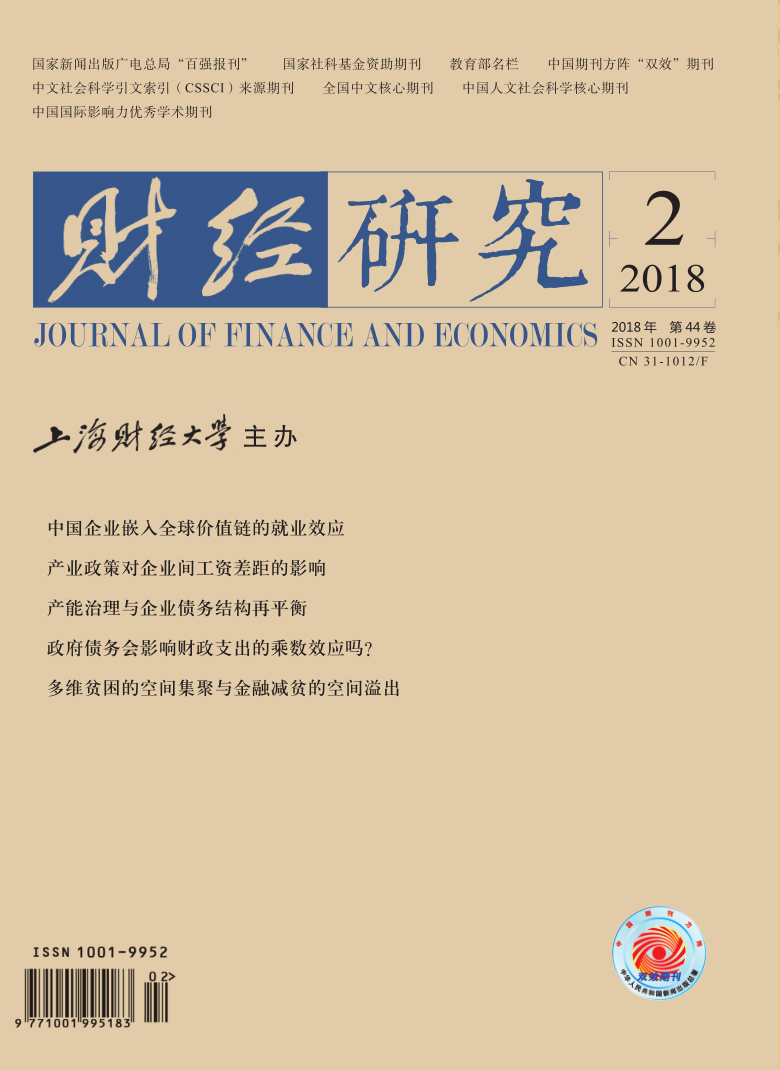The economic consequences of ethnic diversity, and its occurrence mechanisms, have not been explored much in economics, especially in Chinese economy. Based on the fifth(2000), the sixth(2010)national census data and the 1% national population sample survey data(2005), this paper constructs the panel data of ethnic diversity of 346 cities, then examines the impact of ethnic diversity on economic growth in China at the city level and explores the mechanisms by which ethnic diversity affects municipal economic growth. The empirical analysis shows that higher ethnic diversity, measured by the ethnic fractionalization index(EFI), significantly lowers the economic growth, after controlling the variables such as initial per capita output level, investment in fixed assets, average education level, trade dependence and urbanization rate, as well as municipal fixed effects and time fixed effects. This finding keeps robust after the use of ethnic polarization indicator(EPI)for robustness check and the use of distance from cities to provincial capitals as the instrumental variable for ethnic diversity to eliminate variable endogeneity. To sum up, under other unchanged variables, higher ethnic diversity leads to lower local economic development. In addition to empirical findings, we also contribute to previous literature by offering better method to deal with missing variables and endogenous problem. By investigating the mechanisms, we further arrive at the findings as follows: firstly, higher ethnic diversity significantly increases the cost of language communication; secondly, higher ethnic diversity significantly reduces investment rate in private sectors; moreover, high language communication cost and low investment in private sectors both reduce economic growth; thirdly, the investment rate in public sectors is not affected by ethnic diversity, and ethnic diversity positively correlates to per capita central government transfer payment, both of which greatly alleviate the negative impact of ethnic diversity. These findings on the one hand provide new empirical evidence for the research of economic consequences of ethnic diversity; on the other hand they offer new explanation of economic growth imbalance across China’s cities and new policy implications. First of all, this paper confirms the hypothesis that the negative effect of ethnic diversity on regional economy in international literature is also valid in China. Secondly, further discussion of the mechanisms suggests the following empirical implications: first, the promotion of Mandarin in minority areas has a positive effect on economic development in these areas; it is not only correct but also needed to be strengthened; secondly, compared with investment in private sectors, the government-led public investment and fiscal transfer policies that favor the minority regions have played an important role in promoting inter-ethnic equality and reducing the gap of regional economic development.
 / Journals / Journal of Finance and Economics
/ Journals / Journal of Finance and EconomicsJournal of Finance and Economics
LiuYuanchun, Editor-in-Chief
ZhengChunrong, Vice Executive Editor-in-Chief
YaoLan BaoXiaohua HuangJun, Vice Editor-in-Chief
Ethnic Diversity and Local Economic Growth: Evidence from Cities of China
Journal of Finance and Economics Vol. 44, Issue 02, pp. 127 - 140 (2018) DOI:10.16538/j.cnki.jfe.2018.02.010
Summary
References
Summary
[1] National Planning Commission Macroeconomic Research Group. The Definition and Classification of Resource-based Cities in China[J]. Macroeconomics, 2002, (11): 37-39.
[2] Mao Jie, Wang Dehua and Bai Chongen. Intergovernmental Transfers for Ethnic Regions, Public Spending Difference and Economic Development Gap[J]. Economic Research Journal, 2011, (S2): 75-87.
[3] Zhenyu Wang, Xin Gu. Ethnic Diversity and Economic Growth: A Literature Review[J]. Research of Institutional Economics, 2016, (4): 1-15.
[4] Xianxiang Xu, Yuyun Liu and Zekai Xiao. Dialect and Economic Growth[J]. China Journal of Economics, 2015, (2): 1-32.
[5] ZHENG Changde, SHAN Deping. Ethnic Diversity and Economic Growth: A Literature Review Based on the Economic Viewpoint[J]. Journal of Ethnology, 2011, (3): 50-61.
[6] China’s Minorities Revision and Editorial Committee. China’s Minorities[M]. BJ: The Ethnic Publishing House, 2009.
[7] Institute of Linguistics CASS, Institute of Ethnology and Anthropology CASS, Language Information Science Research Center of CityUHK. Language Atlas of China[M]. BJ: The Commercial Press, 2012.
[8] Chinese Language Usage Survey Leading Group Office. Chinese Language Usage Survey Data[M]. BJ: Language & Culture Press, 2006.
[9] Aghion P, Howitt P. Economics of Growth[M]. The MIT Press, 2009.
[10] Alesina A, Özler S, Roubini N, et al. Political instability and economic growth[J]. Journal of Economic growth, 1996, 1(2): 189-211.
[11] Alesina A. Public Goods and Ethnic Divisions[J]. Scholarly Articles, 1999, 114(4): 1243-1284.
[12] Alesina A. Participation In Heterogeneous Communities[J]. Quarterly Journal of Economics, 2000, 115(3): 847-904.
[13] Alesina A, Baqir R, Hoxby C. Political Jurisdictions in Heterogeneous Communities[J]. Journal of Political Economy, 2002, 112(3): 229–233.
[14] Alesina A, Devleeschauwer A, Easterly W, et al. Fractionalization[J]. Journal of Economic Growth, 2003, 8(2): 155-194.
[15] Alesina A, Ferrara E L. Ethnic Diversity and Economic Performance[J]. Journal of Economic Literature, 2005, 43(3): 762-800.
[16] Alesina A F, Gennaioli C, Lovo S. Public Goods and Ethnic Diversity: Evidence from Deforestation in Indonesia[J]. NBER Working Papers, 2015.
[17] Bridgman B. Why are ethnically divided countries poor?[J]. Journal of Macroeconomics, 2008, 30(1): 1-18.
[18] Cerqueti R, Coppier R, Piga G. Corruption, growth and ethnic fractionalization: a theoretical model[J]. Journal of Economics, 2012, 106(2): 153-181.
[19] Detotto C, Otranto E. Does crime affect economic growth?[J]. Kyklos, 2010, 63(3): 330-345.
[20] Dincer, Oguzhan C., Fan Wang. Ethnic diversity and economic growth in China[J]. Journal of Economic Policy Reform, 2011, 14(1): 1-10.
[21] Habyarimana J, Humphreys M, Posner D N, et al. Why does ethnic diversity undermine public goods provision?[J]. American Political Science Review, 2007, 101(04): 709-725.
Cite this article
Wang Zhenyu, Gu Xin. Ethnic Diversity and Local Economic Growth: Evidence from Cities of China[J]. Journal of Finance and Economics, 2018, 44(2): 127–140.
Export Citations as:
For
ISSUE COVER
RELATED ARTICLES




 , 2
, 2 9698
9698  8271
8271

